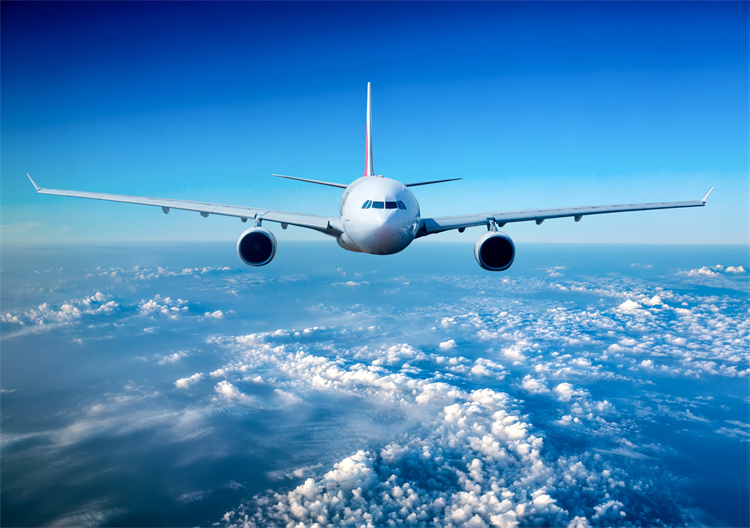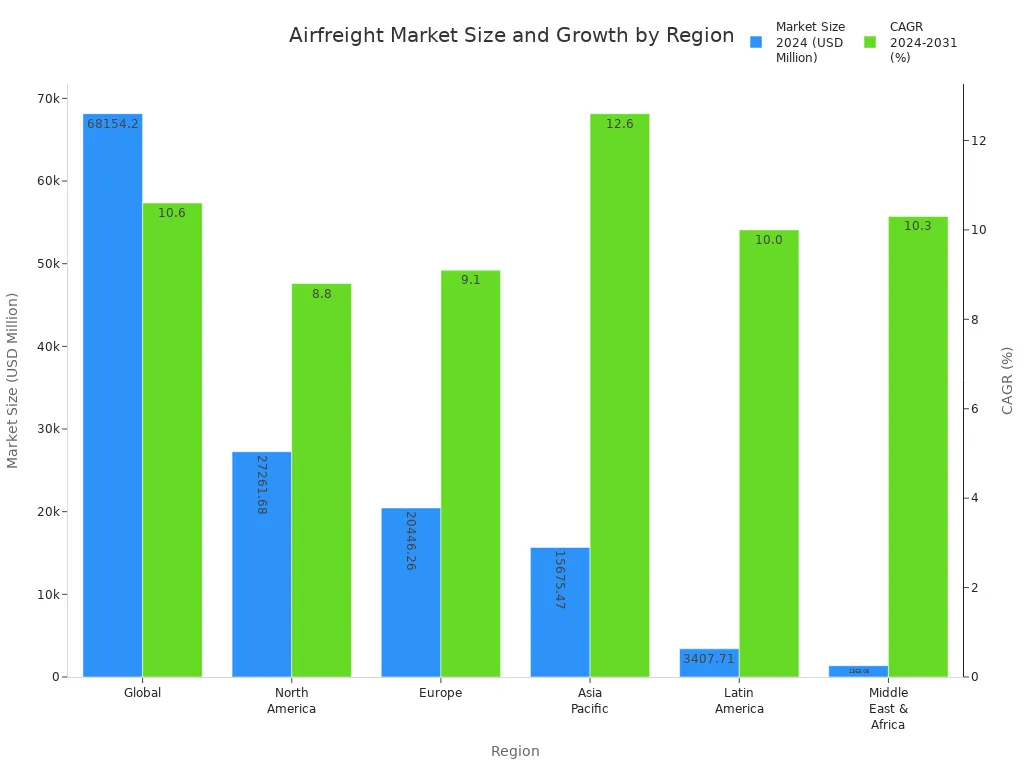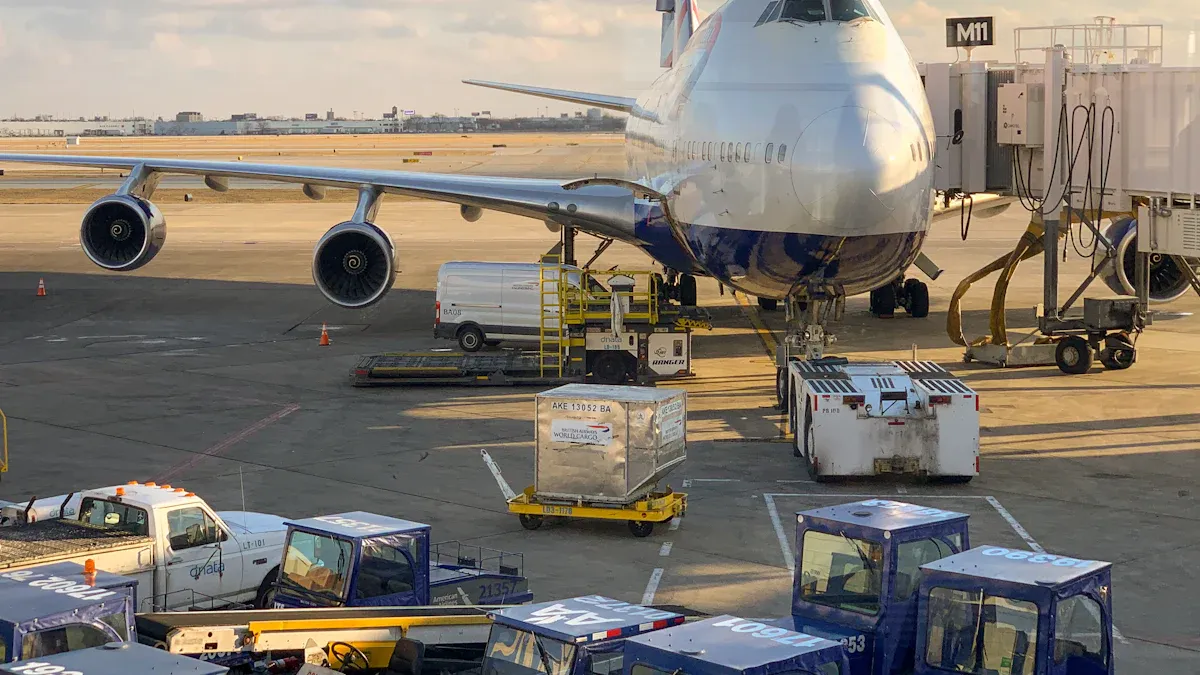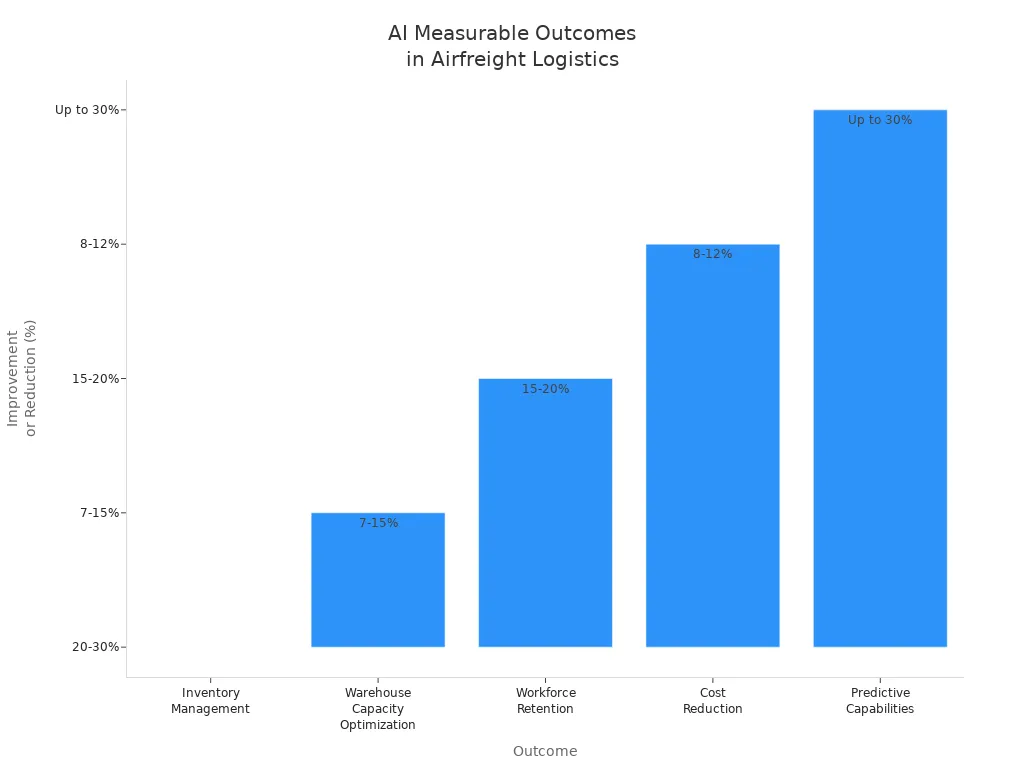Global Airfreight Logistics Trends and Updates


Global airfreight logistics are growing fast. Asia Pacific is the top region in the market. Moving goods by aircraft is quick and dependable for expensive items. Air freight is becoming more important as airlines, airports, and supply chain managers use digital tools. JUSDA helps global logistics with smart warehousing and technology-based air cargo solutions.
Key Takeaways
Global airfreight logistics are growing quickly. This is because more people want goods in Asia Pacific. New trade patterns are also helping growth around the world.
Technology like AI, automation, and digital tools help air cargo work better. They make things faster, more correct, and save money.
Sustainability efforts are important for airfreight logistics. These include using green fuels and carbon-neutral warehouses. These changes will shape the future of airfreight logistics.
Airfreight Logistics Trends

Market Growth and Capacity
The airfreight logistics sector is growing quickly. This growth is shaped by changes in world trade and supply and demand. IATA says global air cargo demand went up 11.3% in 2024. This is higher than past records. International flights grew by 12.2%. Capacity around the world rose by 7.4%. Asia-Pacific led with a 14.5% jump in demand. Its capacity also went up by 11.3%. North America grew slower, with demand up 6.6% and capacity up 3.4%. The Asia-Europe route saw a 13.4% increase. The Asia-North America route dropped by 10.7%. This was because of U.S. trade policy changes and tariff exemptions.
The Middle East is now a key hub for air cargo. It is getting more air cargo traffic. Global air cargo capacity grew by 5% this year. Asia Pacific made up 56% of the 12% rise in tonnage. Even with problems in some regions and world tensions, the air freight market is still growing. Capacity trends show steady growth.

Experts think global air cargo demand will rise 4-6% in 2025. This will be faster than the 3-4% growth in capacity. So, demand will stay higher than supply. This keeps the market tight. Technavio says airfreight logistics will grow by 19.5 million tons from 2022 to 2027. The CAGR will be 5.3%. E-commerce, just-in-time manufacturing, and the need for temperature-sensitive products like pharmaceuticals help this growth. Prices change a lot because of fuel costs and trade rules. Some routes, like Europe-North America, are staying strong.
Technology and Digitalization
Technology is changing air cargo everywhere. Digital tools and automation are now needed to handle global logistics. Some big changes are the Electronic Air Waybill, which replaces paper, and digital platforms that show real-time shipping rates and space. Data integration with APIs and EDI helps track shipments better.
AI, blockchain, and IoT are now very important in airfreight logistics. These tools help track cargo, predict risks, and make work faster.
Automated customs and e-freight make following rules easier and cut delays.
Robots and exoskeletons at airports help workers and make them more productive.
Real-time data and better inventory control help move cargo and keep customers happy.
JUSDA is a leader in this area. Its JusLink platform uses AI to manage the whole supply chain. It brings together data, management, and smart tools. JusLink lets companies handle everything from planning to making choices using real-time data. AI helps predict demand, inventory, and risks better. Hyper-automation, like AI-run warehouses and robots, makes logistics work better. These digital tools help suppliers, makers, and customers work together. This makes air cargo supply chains smarter, greener, and quicker.
AI Application Area | Measurable Outcome Description | Quantitative Impact / Example |
|---|---|---|
Planning and Inventory Management | AI-driven demand forecasting reduces inventory levels and improves fill rates | Inventory reduction by 20-30%; fill rate improvement by 5-8% |
Warehousing Optimization | Use of AI simulations to optimize layouts and throughput without physical expansion | Warehouse capacity increase by 7-15% |
Workforce Intelligence | Analytics to reduce frontline attrition and improve EBITDA | Attrition reduction by 15-20%; 4% EBITDA improvement |
Forecast Accuracy | AI-enabled supply chains improve forecast precision | Forecast accuracy improved by up to 30% |
These results show that AI and digital tools save money. They also make airfreight logistics faster, more stable, and more accurate.
Sustainability in Air Cargo
Sustainability is now very important in air cargo. The industry is using new rules and certifications to help the environment. Sustainable Aviation Fuel is the top idea. It can lower greenhouse gas emissions by up to 94%. SAF can mix with regular jet fuel and work in today’s planes and airports. This makes it easy for airlines and cargo companies to use. Many airlines already use SAF in their green programs. IATA says SAF could give about 65% of the cuts needed for aviation to reach net zero CO2 by 2050.
Industry standards from IATA push airlines, handlers, and airports to use new tech, save fuel, and help the environment. Certifications like the Forest Stewardship Council help with responsible packaging and pallets.
JUSDA helps the planet with green projects. The company uses carbon-neutral warehouses and electric vehicles for last-mile delivery. AI tools help with demand forecasting, maintenance, and route planning. This makes work better and costs lower. Automation, like Autonomous Mobile Robots, saves energy and cuts carbon in warehouses. JUSDA also uses cloud computing and big data to make supply chains faster and greener. These actions have made JUSDA a leader in sustainable global logistics.
Recent Developments in Air Freight

Industry News and Partnerships
The air cargo industry is always changing. Big news, new partnerships, and rule changes shape how companies move goods. These updates affect how logistics work all over the world.
SG Holdings bought Morrison Express. Morrison Express is good at moving semiconductors and high-tech items. This helps SG Holdings grow in Asia and makes its network stronger. Customers now get better supply chain help for air, ocean, rail, and road freight.
Qatar Airways Cargo, IAG Cargo, and MASkargo made a three-way partnership. They want to make air cargo faster and better for customers. This team-up gives more routes and quicker shipping.
Swiss WorldCargo joined Lufthansa Cargo and United Cargo for transatlantic shipping. This gives customers more choices and flexibility.
Alliance Cargo Express teamed up with Turkish Cargo to grow their airfreight services.
These partnerships bring new ideas and make things work better. For example, USKO Inc. works with airlines to plan routes and manage loads. This saves fuel and cuts down on pollution. They also help track shipments and clear customs quickly, making service more reliable.
Air cargo companies buy new planes like the Boeing 777F and Airbus A350F. These planes carry more and use less fuel. Companies also build better cargo centers with robots and cold storage to move goods faster and safer. Working together helps them follow rules and reach new places.
New rules also change air cargo. The UAE now uses the 64th IATA Dangerous Goods Regulations. This changes how lithium batteries are shipped. The Pre-Loading Advance Cargo Information system checks risks before loading. The European Union made new rules for tracking plane emissions, so companies must follow stricter rules.
Money trends also change air cargo. Jet fuel prices, not enough space, and world problems change prices and routes. More people shop online, so there is more need for fast air cargo. This puts pressure on space and prices. Digital tools like AI and blockchain help companies set prices quickly and work better.
JUSDA Warehouse Solutions
JUSDA is a leader in airfreight logistics. The company uses Foxconn’s supply chain skills to run warehouses around the world. These warehouses are in China, Hong Kong, Taiwan, Japan, Vietnam, India, the United States, and Mexico. JUSDA’s warehouses handle many types of freight, including special air cargo for electronics.
Some top features of JUSDA’s warehouses are:
Fast and safe delivery, even for dangerous goods.
Works with e-commerce sites like Shopify for real-time rates, labels, and tracking.
Easy last-mile delivery with UPS and FedEx.
Smart inventory systems like eVMI and JusLink for real-time tracking.
JUSDA’s warehouses use the newest robots and machines. Robots sort and pick up cargo. Automated Storage & Retrieval Systems help get items quickly and with fewer mistakes. Goods-to-person robots bring items to workers. Drones with RFID tags track inventory in real time. These tools make warehouse work faster and more accurate.
JUSDA also cares about the environment. The company uses carbon-neutral warehouses and electric vehicles for last-mile delivery. AI tools help plan demand and routes, making work greener and cheaper.
Feature | Benefit |
|---|---|
Global warehouse network | Fast, reliable air cargo delivery |
Advanced automation | Higher efficiency and fewer errors |
Real-time inventory tracking | Greater transparency and control |
E-commerce integration | Seamless order processing and tracking |
Sustainable operations | Lower carbon footprint and energy use |
These solutions help JUSDA give great service to customers everywhere.
Customer Success Stories
JUSDA’s work in air cargo is shown by real customer stories. Sharp, a big home appliance maker, had trouble with its supply chain. After working with JUSDA, Sharp changed how it handled logistics.
Sharp and JUSDA started SHARP JUSDA LOGISTICS (SJL) to improve global e-commerce shipping. SJL used special software, hardware, and custom plans. The results were strong:
Logistics costs went down by 20%.
Labor costs dropped by 70%.
Orders arrived 30% faster.
SJL used vendor-managed inventory and just-in-time methods. These steps made orders faster and cut extra stock. The JusLink platform gave real-time updates and linked warehouse and transport systems. Automatic data and online freight tools made things quicker and cheaper.
Sharp’s supply chain became quicker and more flexible. The company loaded trucks better, used direct containers, and kept goods safe during COVID-19. SJL also used outside warehouses and got good shipping prices.
JUSDA’s work with Sharp shows how smart warehouse tools and digital platforms fix tough air cargo problems. Customers get better tracking, lower costs, and faster shipping.
JUSDA keeps helping many businesses get these results. Its global warehouses, smart robots, and green focus set new standards in air cargo.

JUSDA Solutions
To provide you with professional solutions and quotations.
Airfreight logistics is changing because more people shop online. New digital tools and rules for being green are also important.
Top companies use AI, blockchain, and machines to work faster and share information better.
Working together and trying new ideas are very important as world trade changes.
JUSDA leads the way by using digital tools and green methods in logistics all over the world.
See Also
Discovering The Latest Trends In Sea Freight 2024
Understanding Emerging Risks Shaping Modern Logistics
How Digital Innovation Is Transforming Future Logistics
Artificial Intelligence Driving The Future Of Supply Chains
Exploring Cutting-Edge Technologies Shaping Logistics Tomorrow
